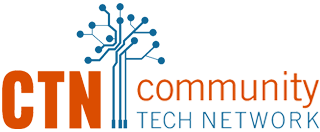Trainer Training
These courses are designed for technology instructors looking to continuously improve their teaching skills.
Check out our Courses:
Teaching Digital
Skills
Teaching Digital Skills
Working with adult learners is very different from teaching children. In order to effectively teach your technology courses for adults, it’s important to learn some key learning principles taken from the field of education.

Take Your Learning Further!
Get the Bundle Now! (Teaching Digital Skills: Intro & Advanced) for a 15% special discounted rate. Click here to enroll in the Bundle!In this course, you’ll learn how to:
- Employ a Learner-Centered Approach
Teach others in a way that is practical, exciting, and effective - Use Your Expertise Most Effectively
Keep your subject matter expertise from getting in the way of clear communication - Identify Your Client’s Zone of Proximal Development
Develop effective lesson plans based on realistic learning objectives - Explore a Variety of Resources
Continue learning about these and other pedagogical approaches to digital literacy
Teaching Digital Skills
Advanced
Teaching Digital Skills: Advanced
If you want to take your digital literacy teaching skills to the next level, this class is a must!

Take Your Learning Further!
Get the Bundle Now! (Teaching Digital Skills: Intro & Advanced) for a 15% special discounted rate. Click here to enroll in the Bundle!In this course, you’ll learn how to:
- Conduct Intakes
Assess learners’ motivations, the skills they need, and their current level of knowledge - Create Opportunities for Group Learning
Leverage the range of knowledge levels in group settings to create opportunities for near-peer learning - Scaffold Lessons
Sequence sub-tasks to move learners progressively through levels of challenge - Identify Potential Challenges
Identify and prepare for likely stumbling blocks among novice learners - Teach Internet Safety
Help learners to differentiate legitimate internet safety concerns from unfounded worries - Model a Growth Mindset
Employ this framework in your conversations with learners
Digital Navigator
Overview
Digital Navigator Overview
Whether you want to become a navigator yourself or train your staff to take on the role, this FREE overview course will teach you the basics about what it means to be a Digital Navigator.
In this course, you’ll learn how to:
- Describe the digital divide and its impact on our society
- Understand the digital navigator model
- Explain the role and responsibilities of digital navigators
- Identify the skills necessary to excel in this role
Note: This course is a prerequisite for Advanced Digital Navigator Training.
Digital Navigators
Advanced
Digital Navigators: Advanced
Whether you want to become a navigator yourself or train your staff to take on the role, this course will teach you everything you need to know.
In this course, you’ll learn how to:
- Understand Digital Navigators in Context
Learn where they work, what they do, and why they’re important - Meet Clients Where They Are
Assess individuals’ current skill levels and conduct effective client intakes - Utilize Adult Learning Principles
Employ key principles from the field of education, recognizing that teaching adults is very different from teaching children - Teach Internet Safety and Citizenship
Understand learners’ fears and bring online safety into the conversation - Maintain Records
Successfully track and evaluate data
Note: The Digital Navigator Overview is a prerequisite to this course.
Teaching Internet
Safety and Responsibility
Teaching Internet Safety & Responsibility
This course will empower digital literacy instructors to teach digital citizenship - which is defined as the ability to use technology responsibly, safely, and respectfully - to diverse individuals affected by the digital divide.
In this course, you’ll learn how to:
- Conceptualize Digital Citizenship
Learn what it is and why it’s important - Teach Digital Citizenship
Learn strategies for teaching students about topics such as internet safety, password security, media literacy, netiquette, and much more - Utilize Adult Learning Principles
Employ key principles from the field of education, recognizing that teaching adults is very different from teaching children - Access Additional Resources
